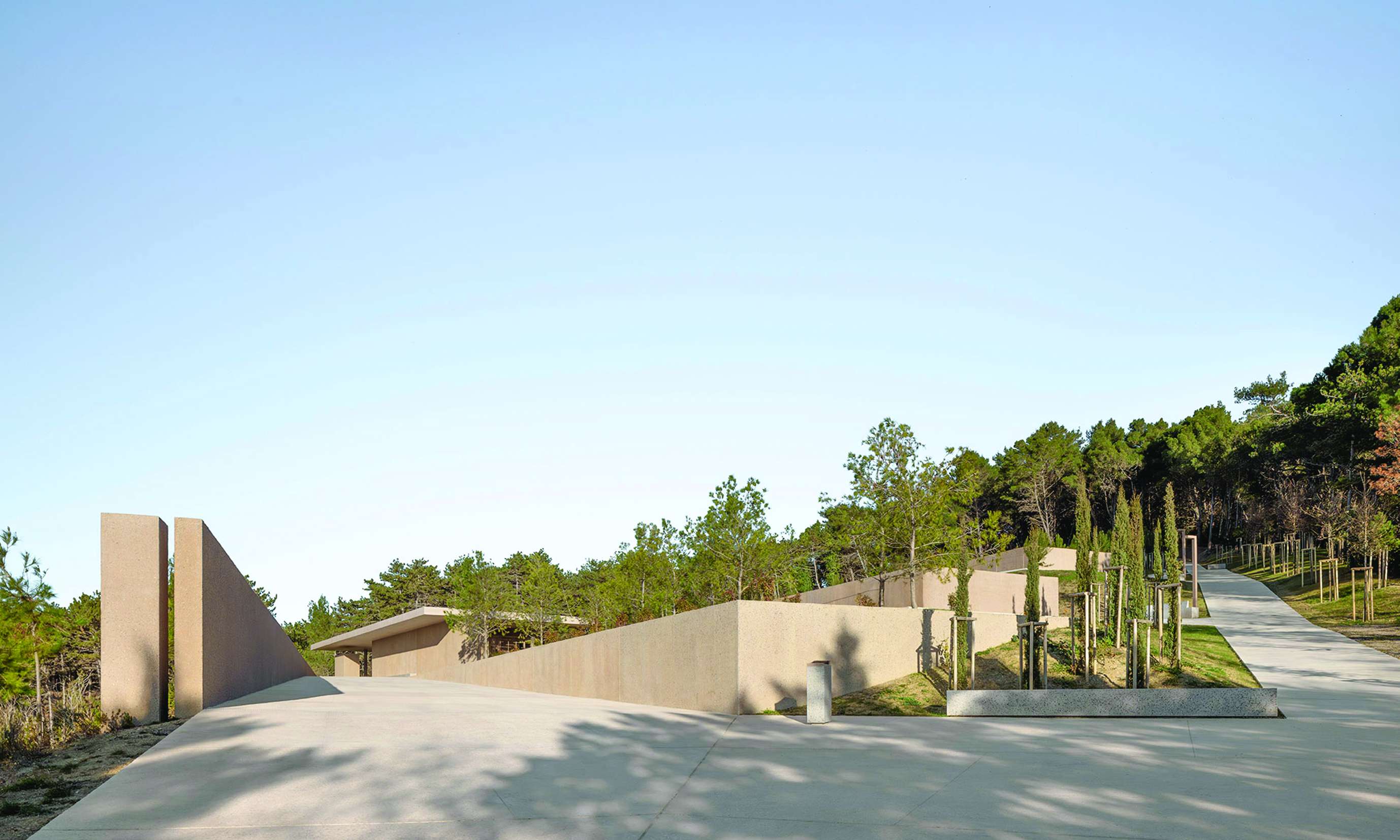
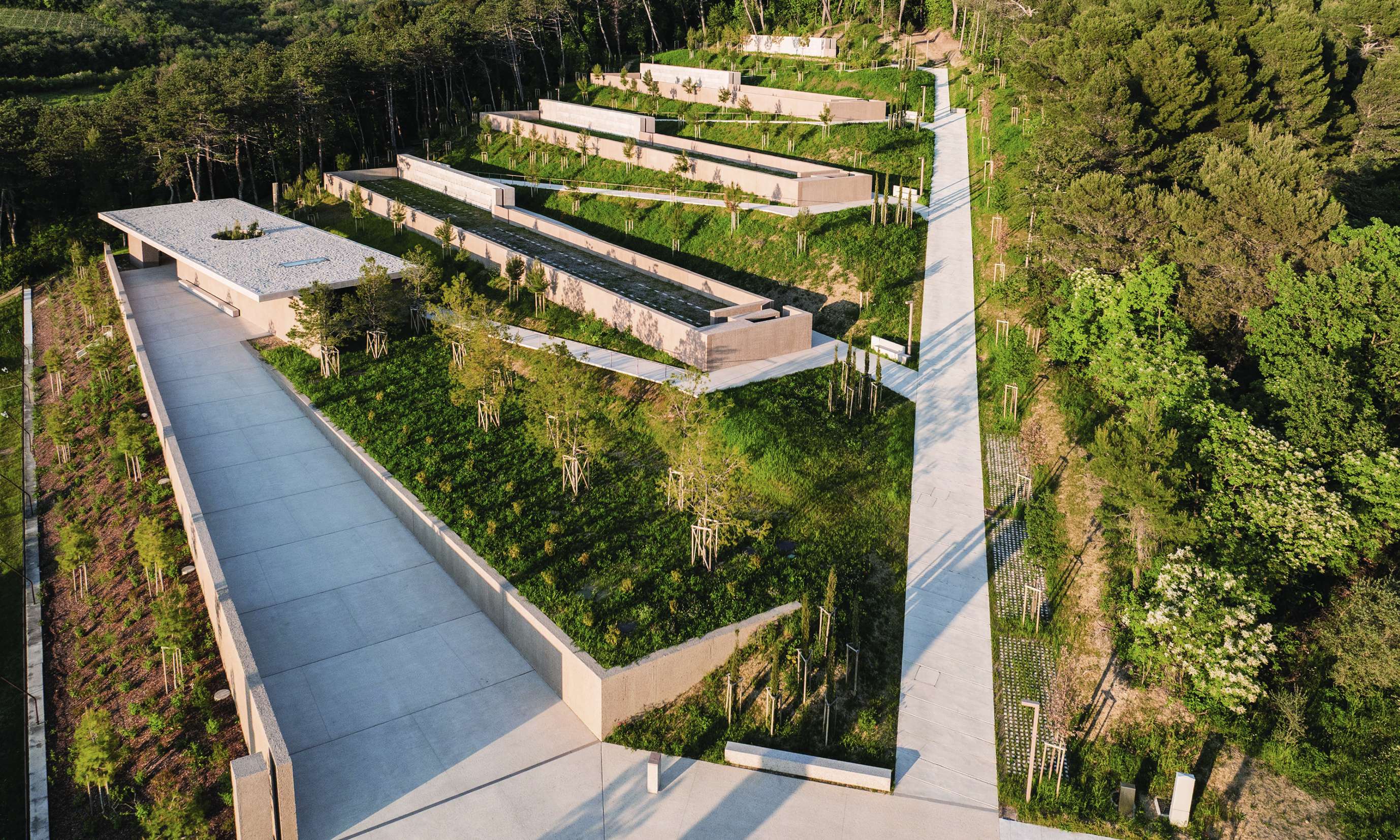
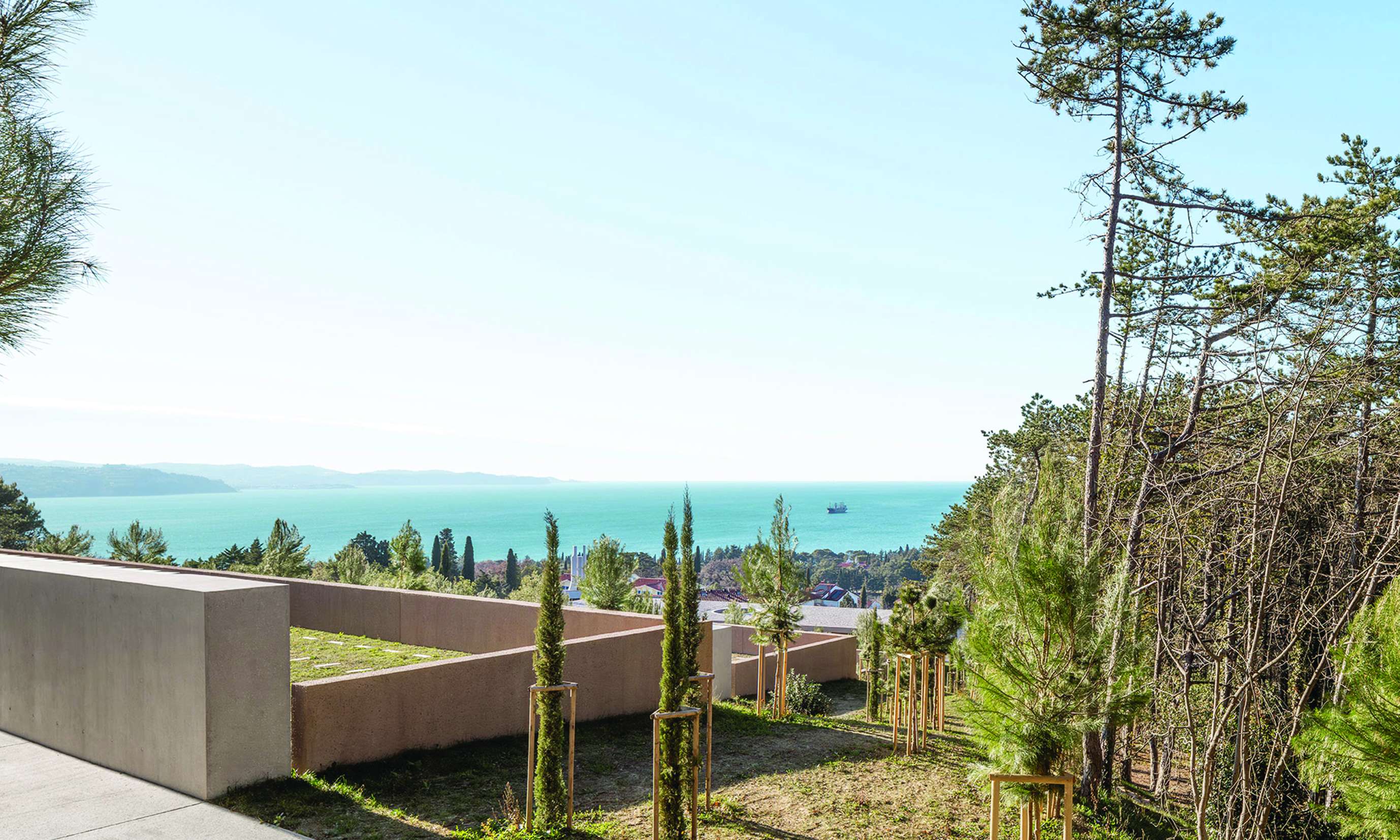
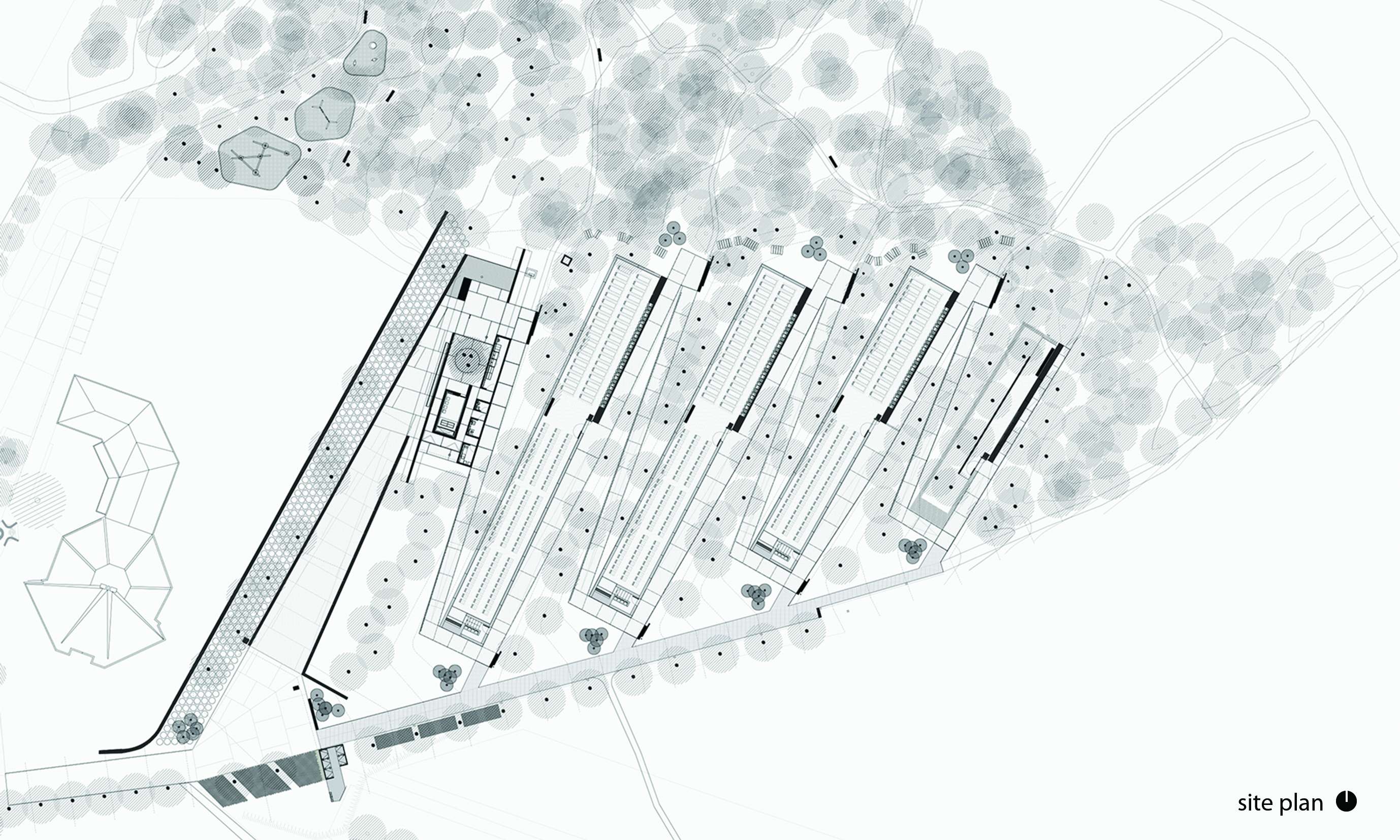
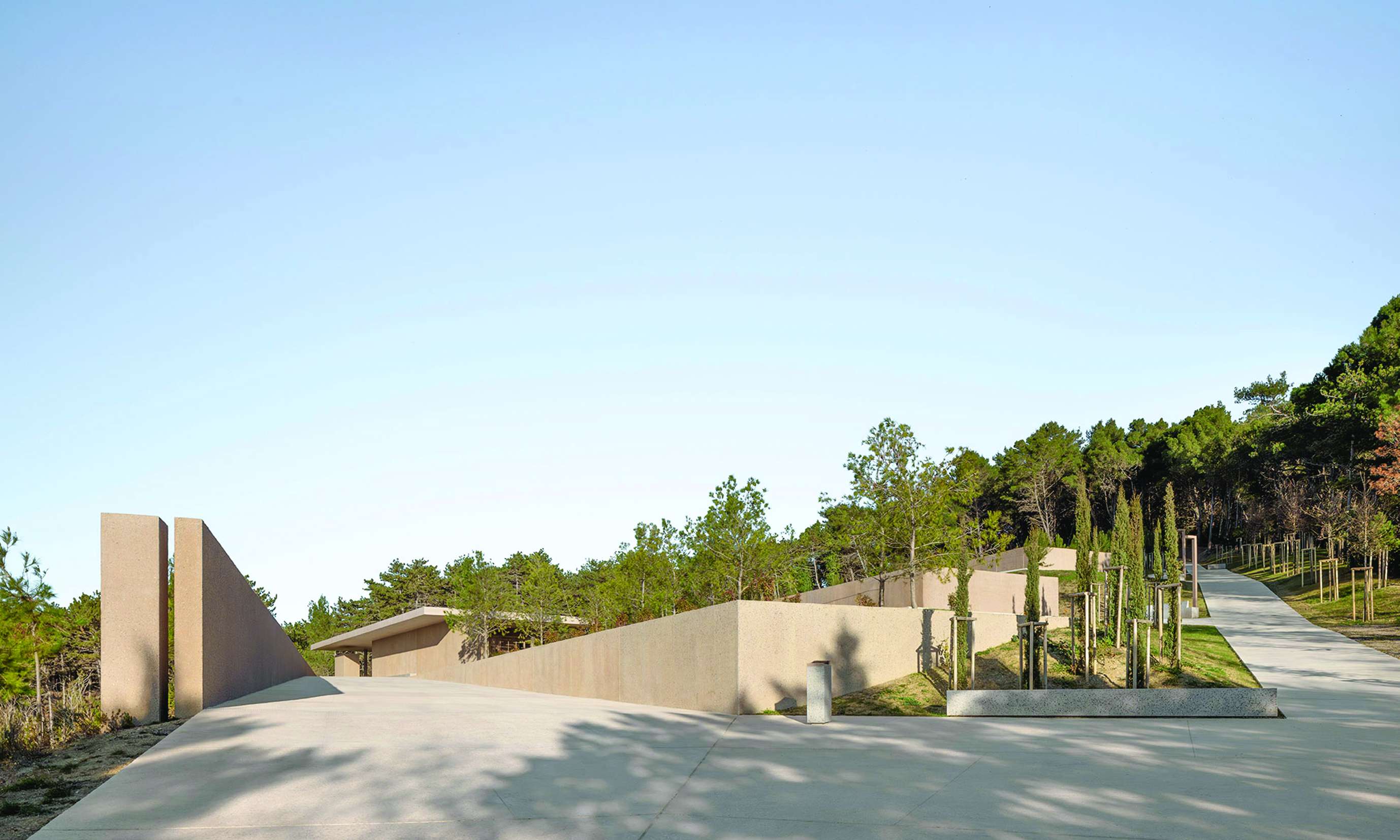
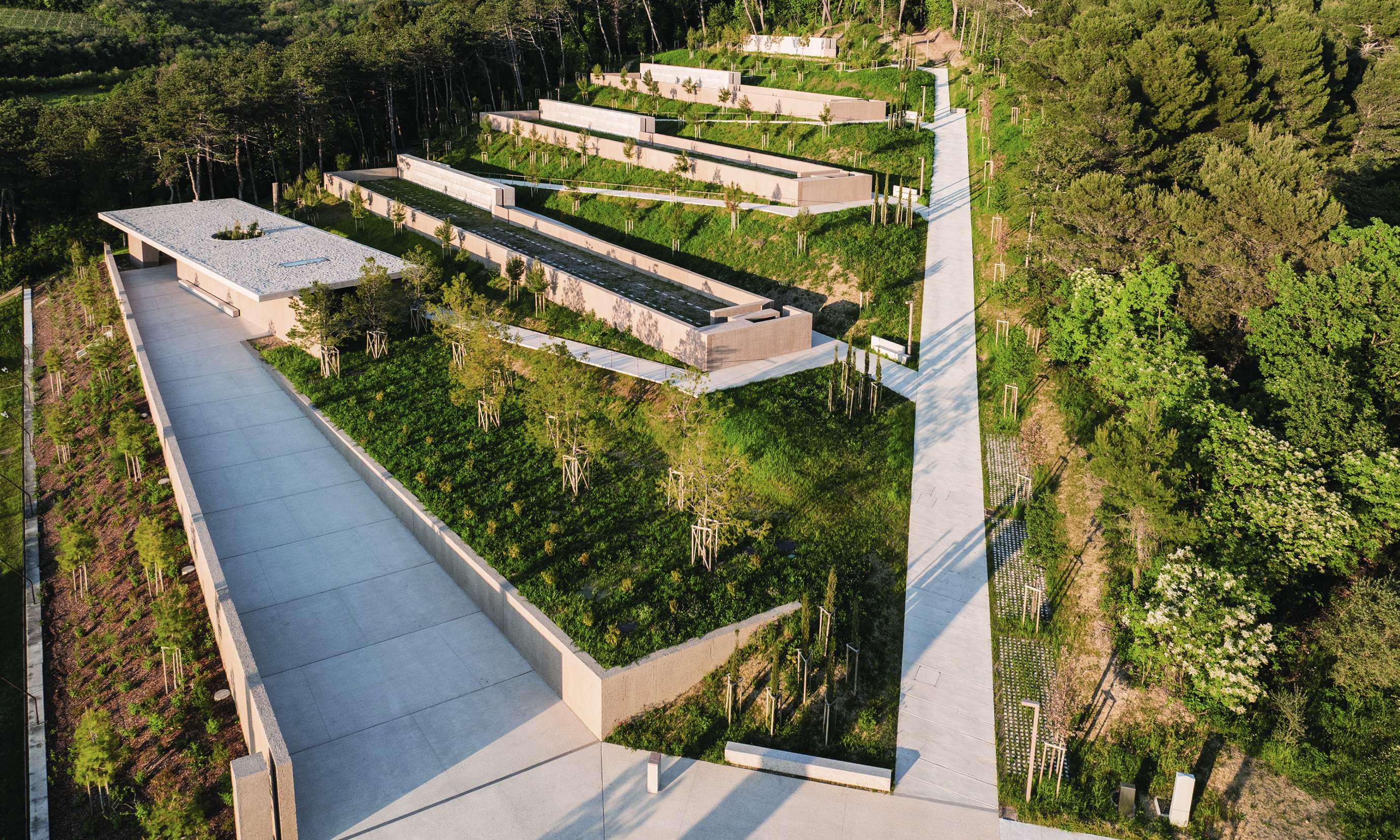
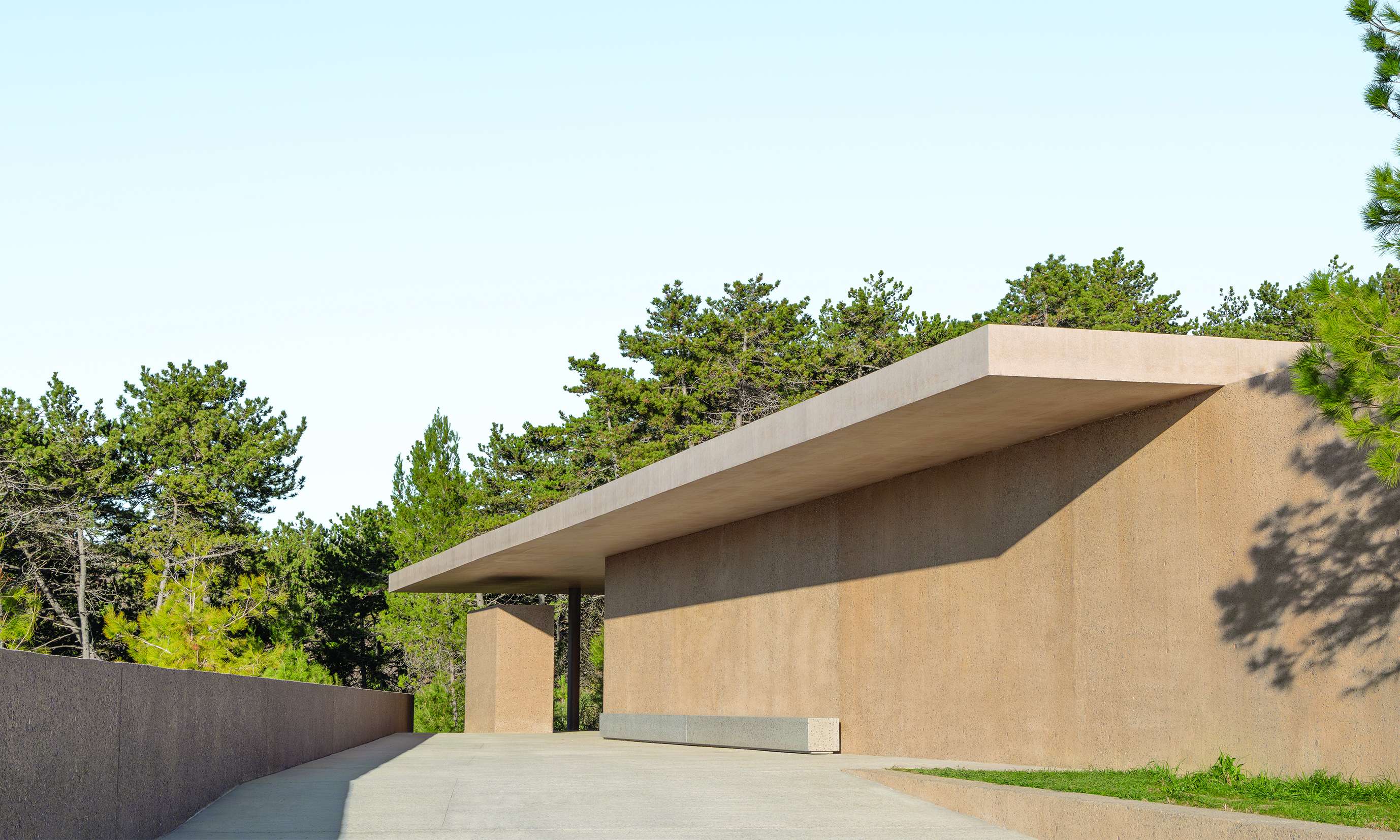
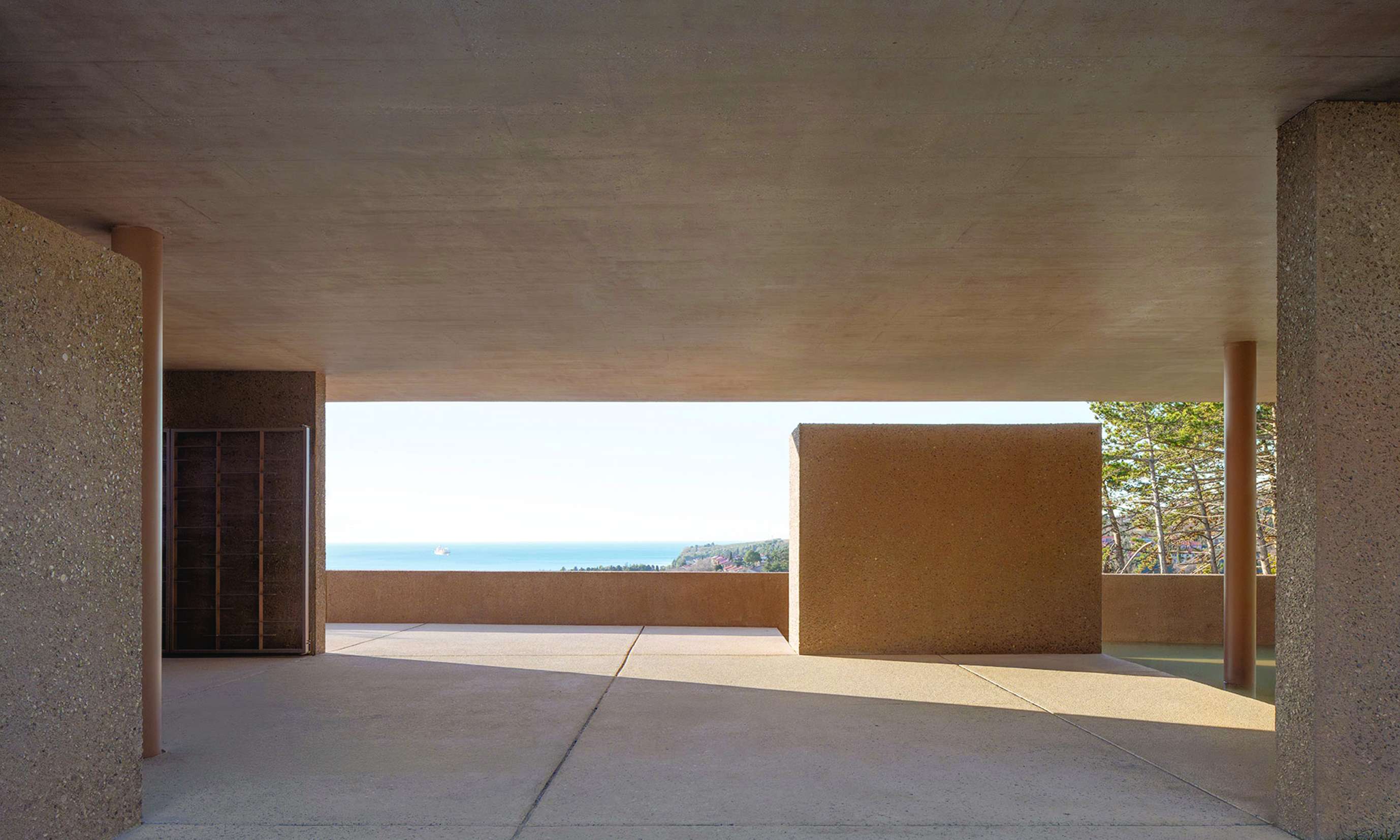
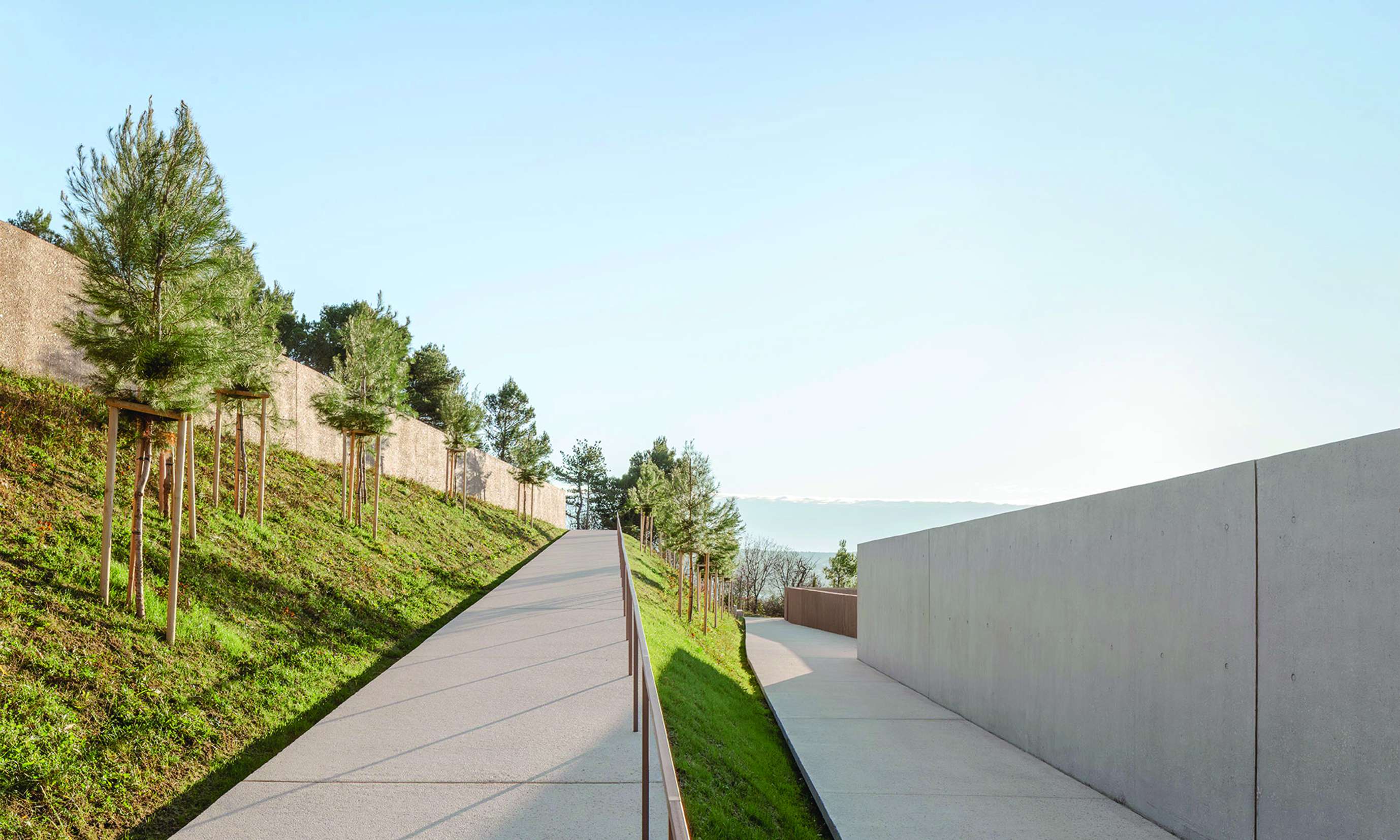
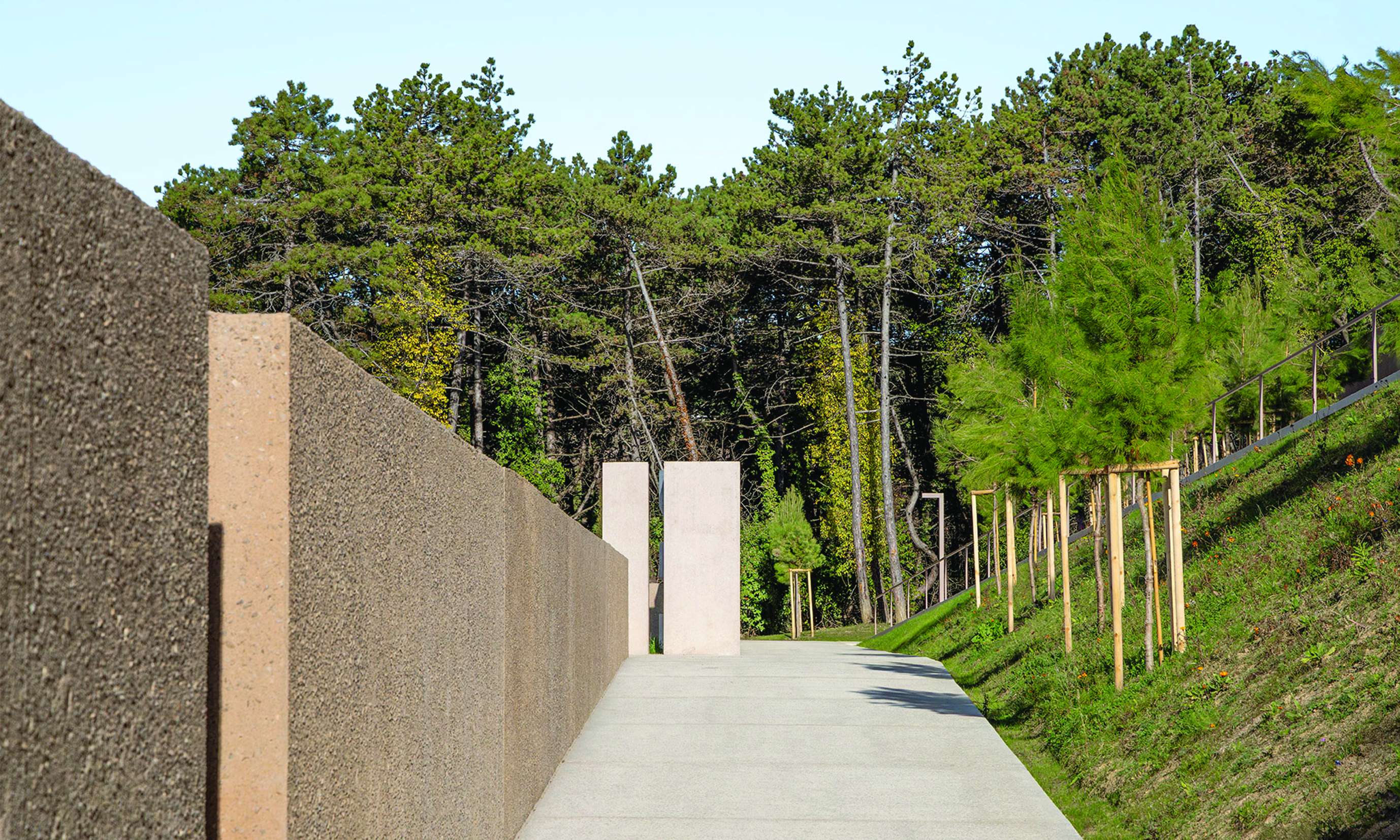
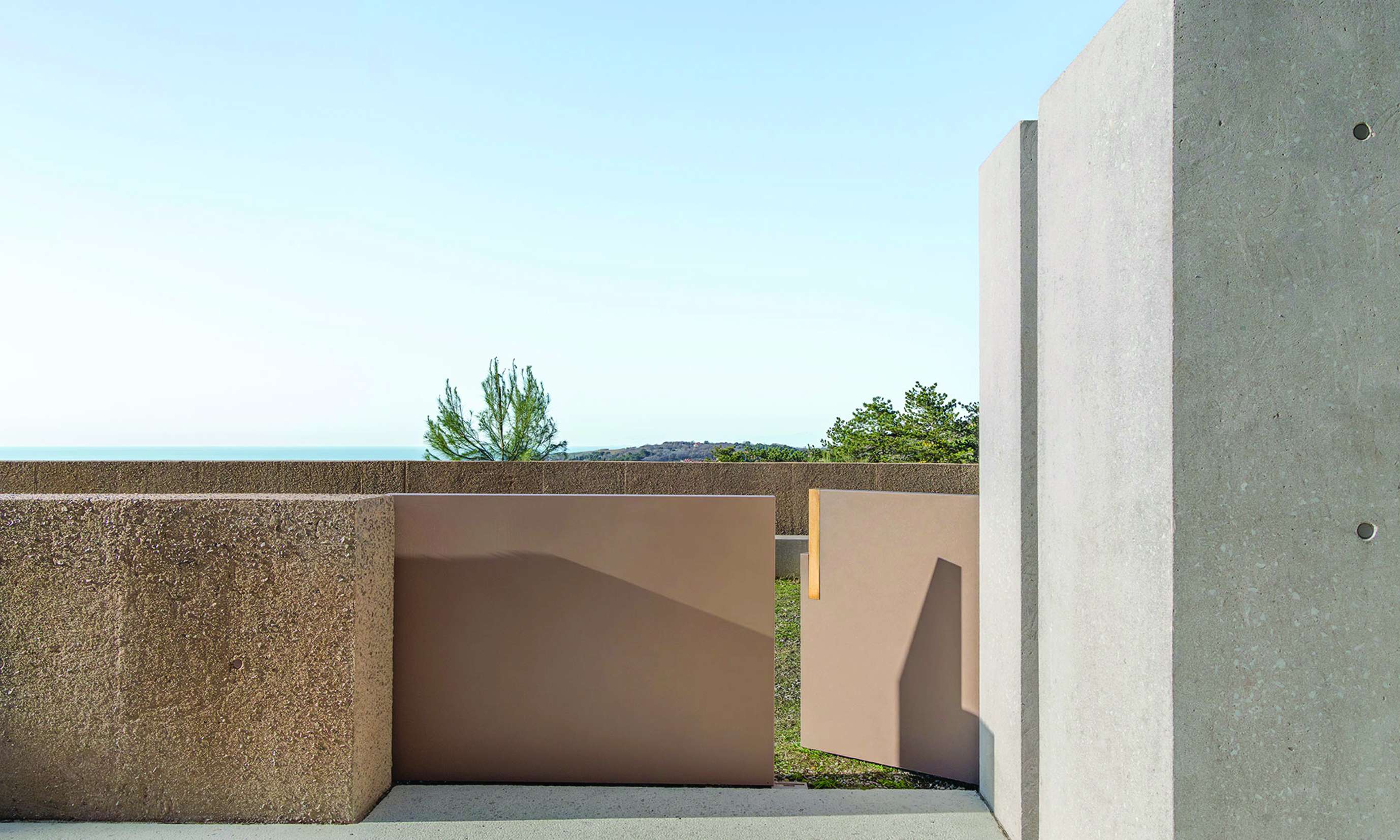
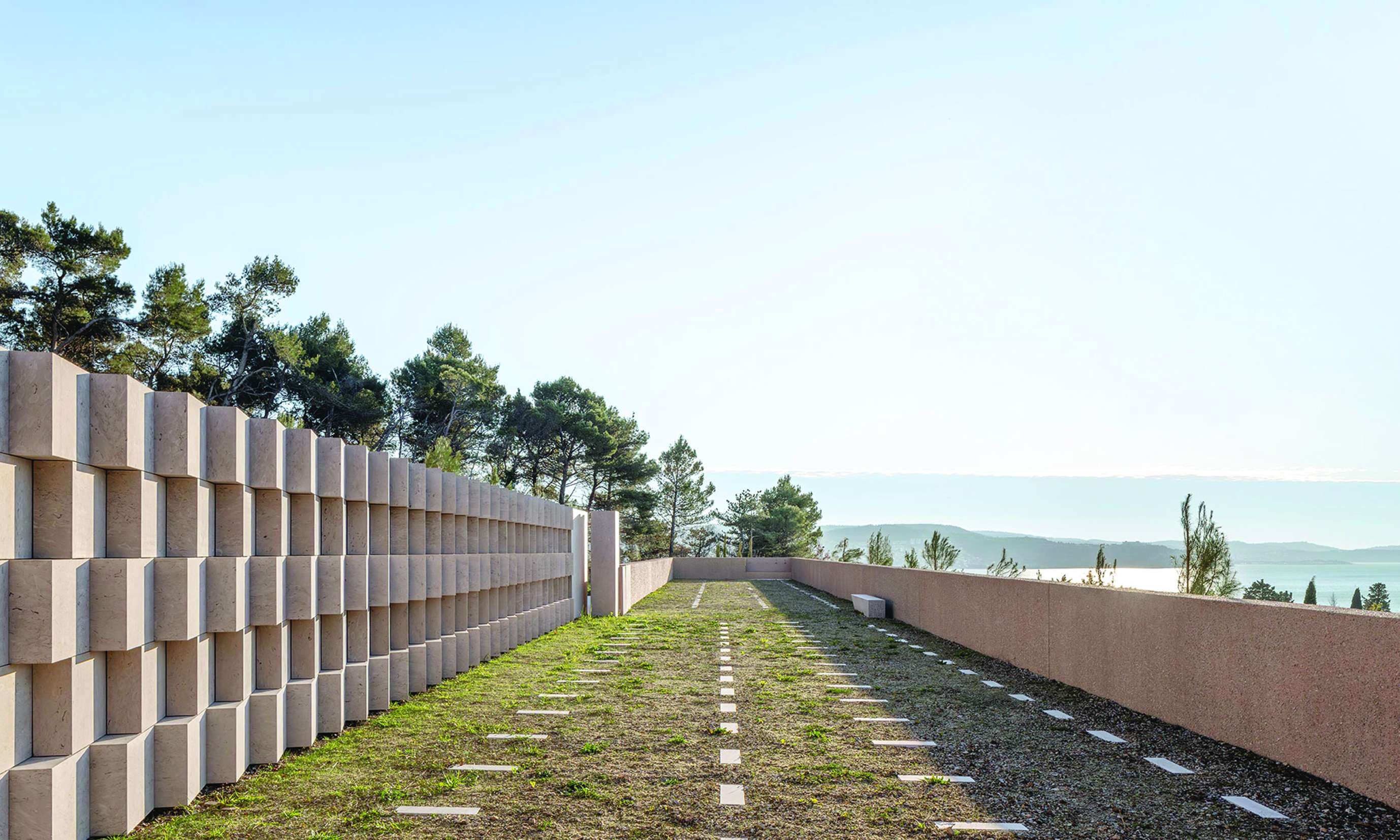
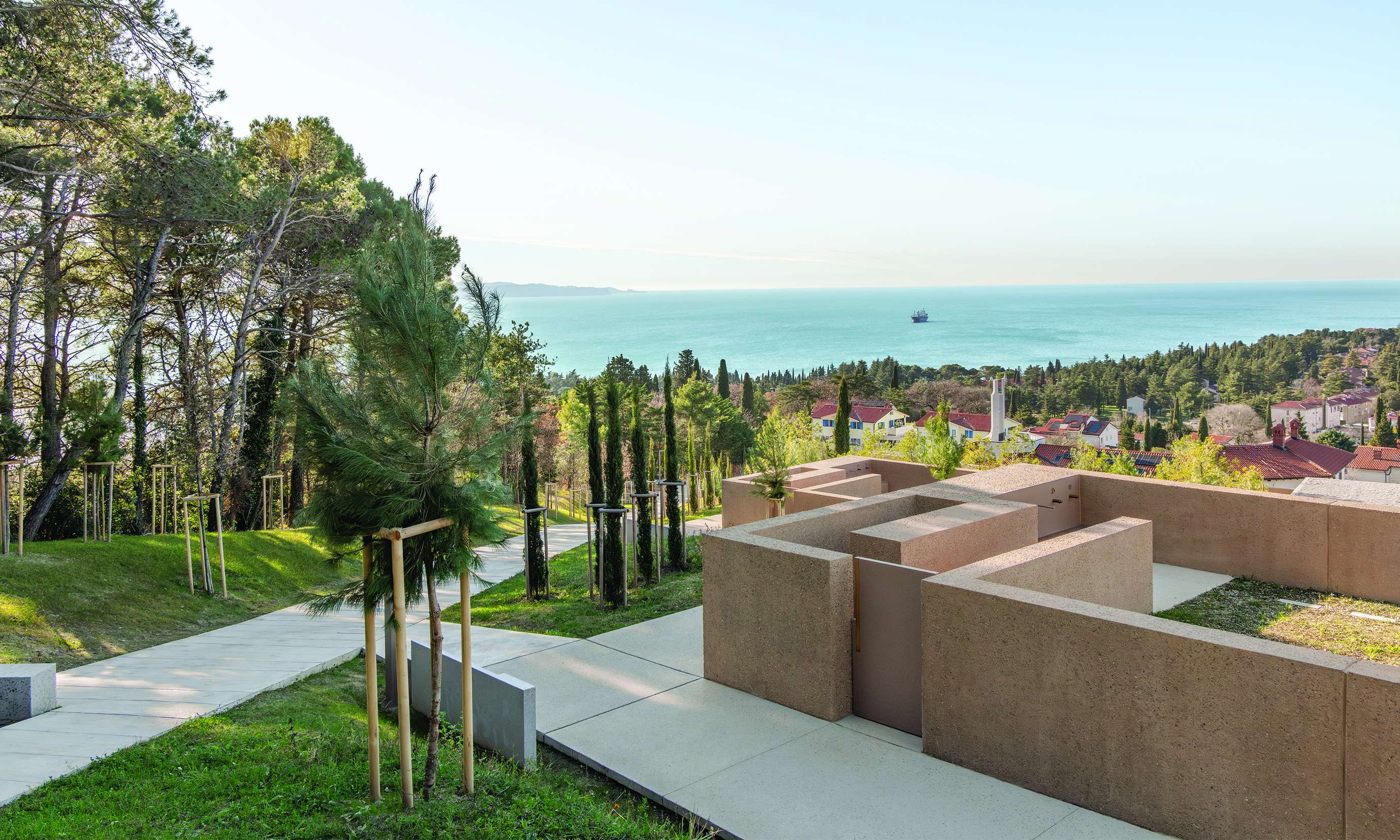
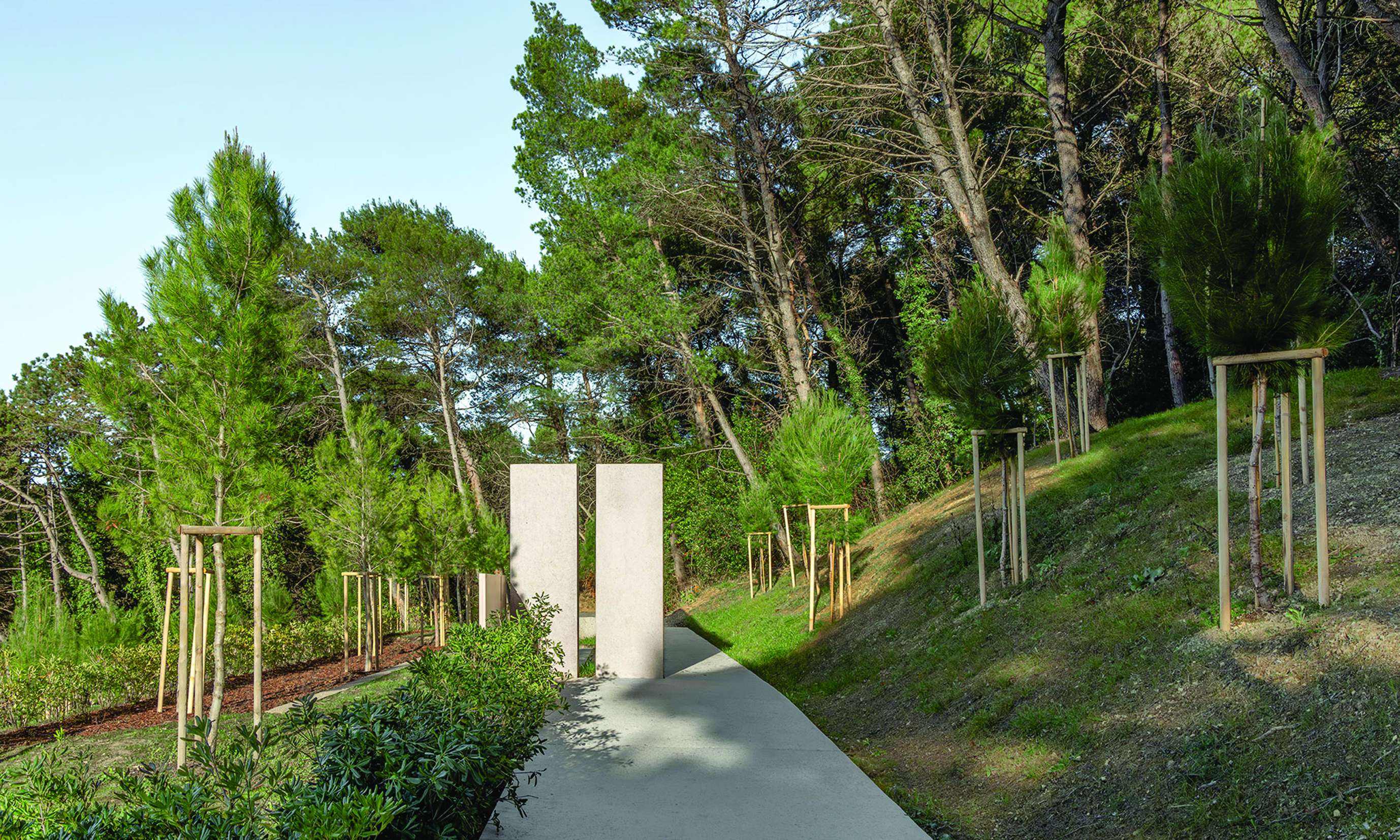
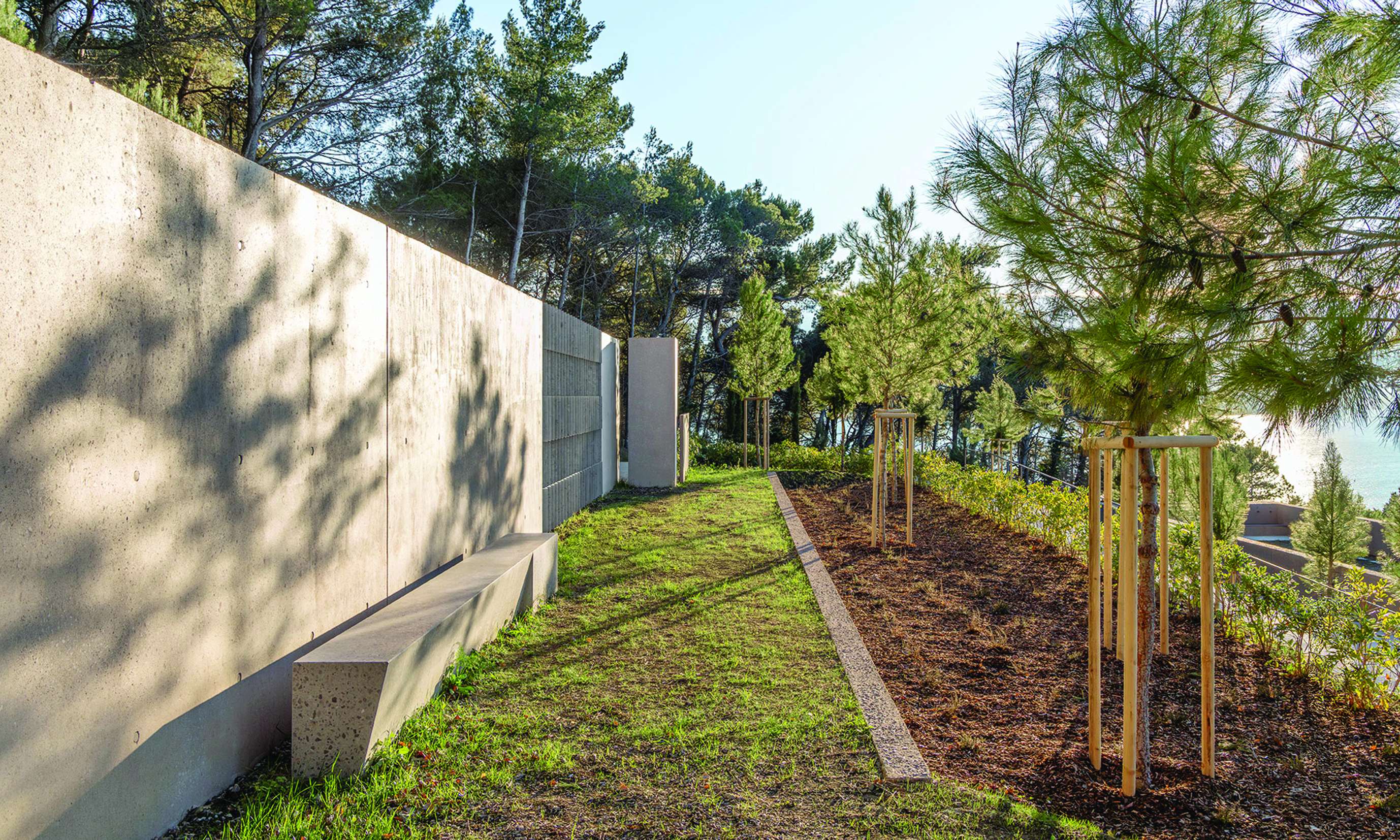
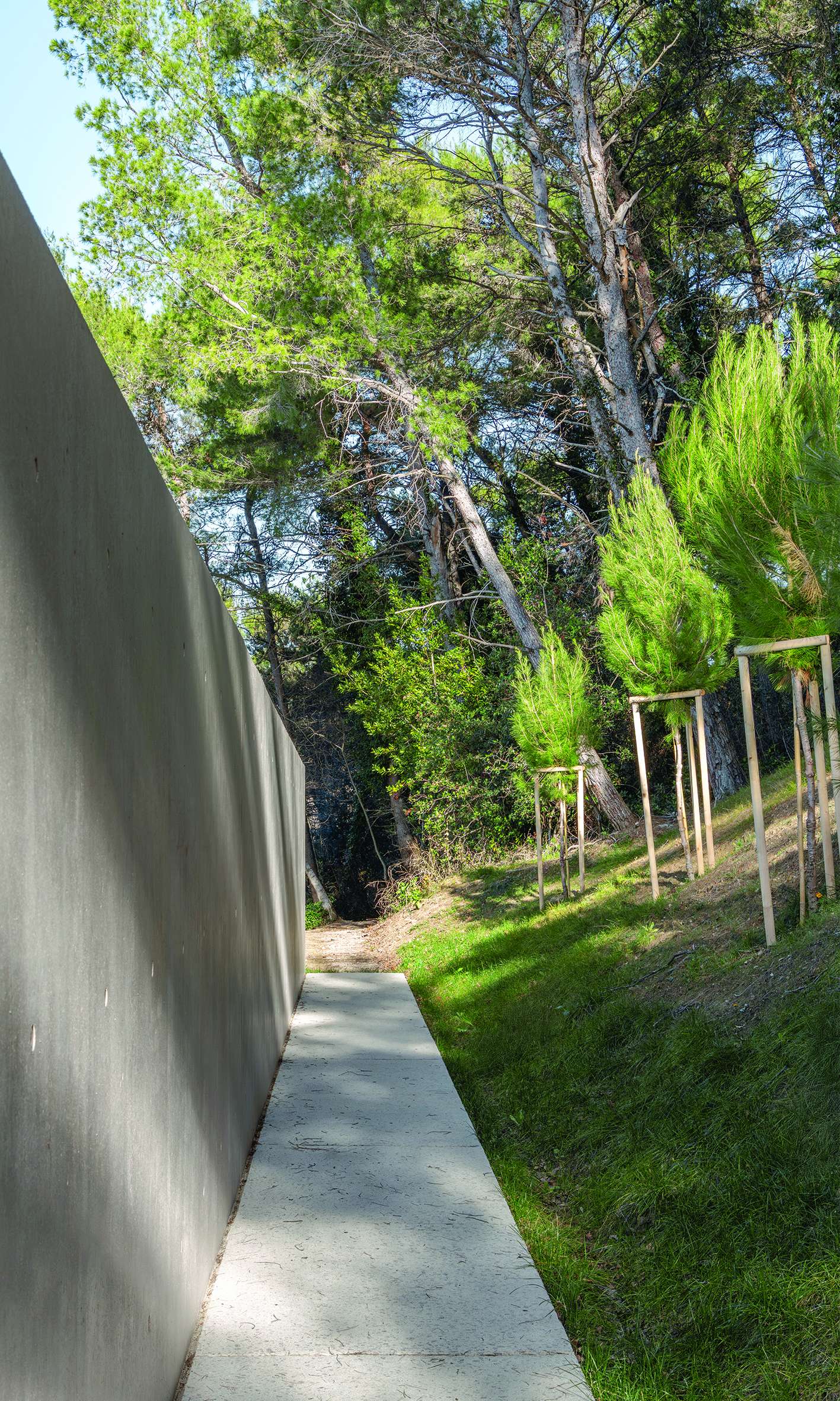
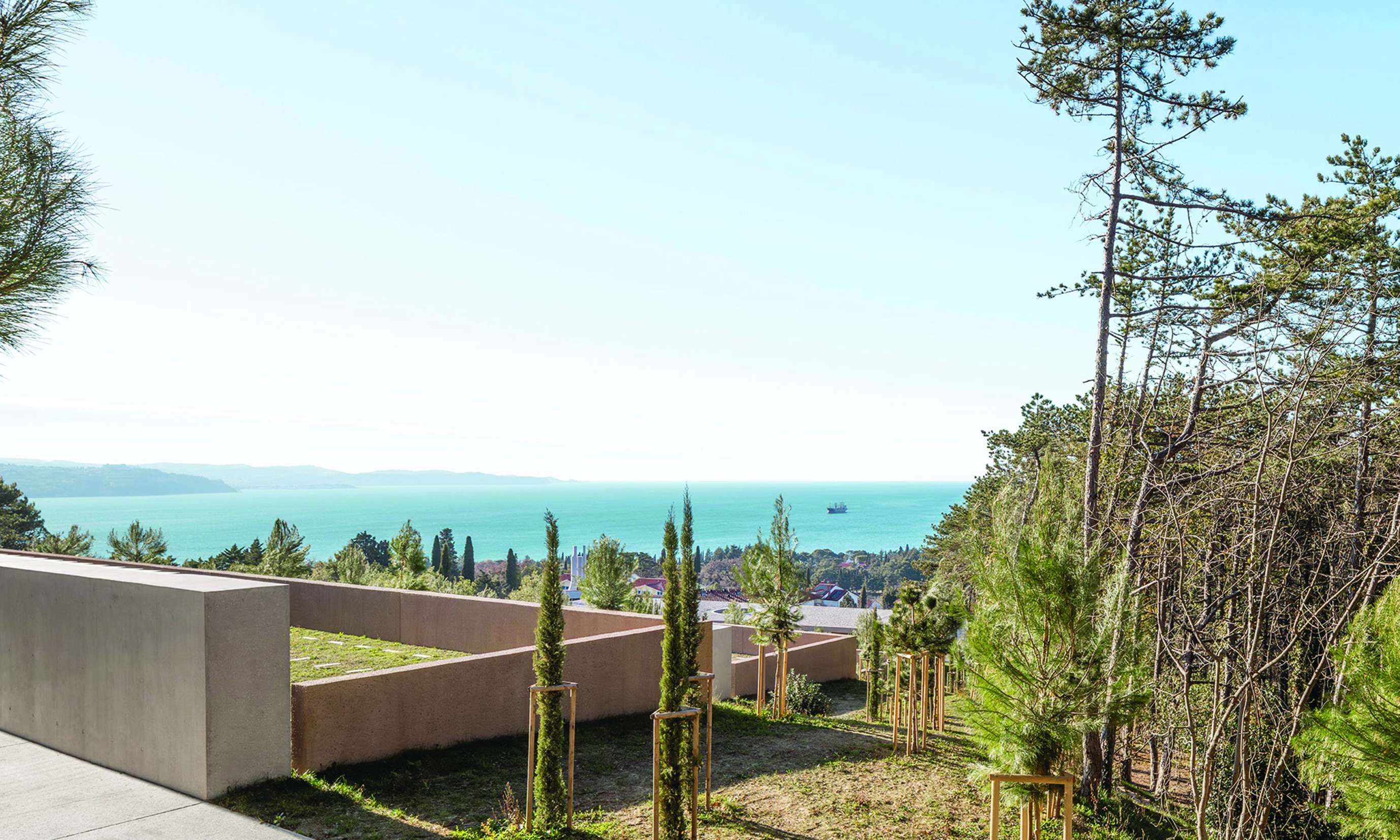
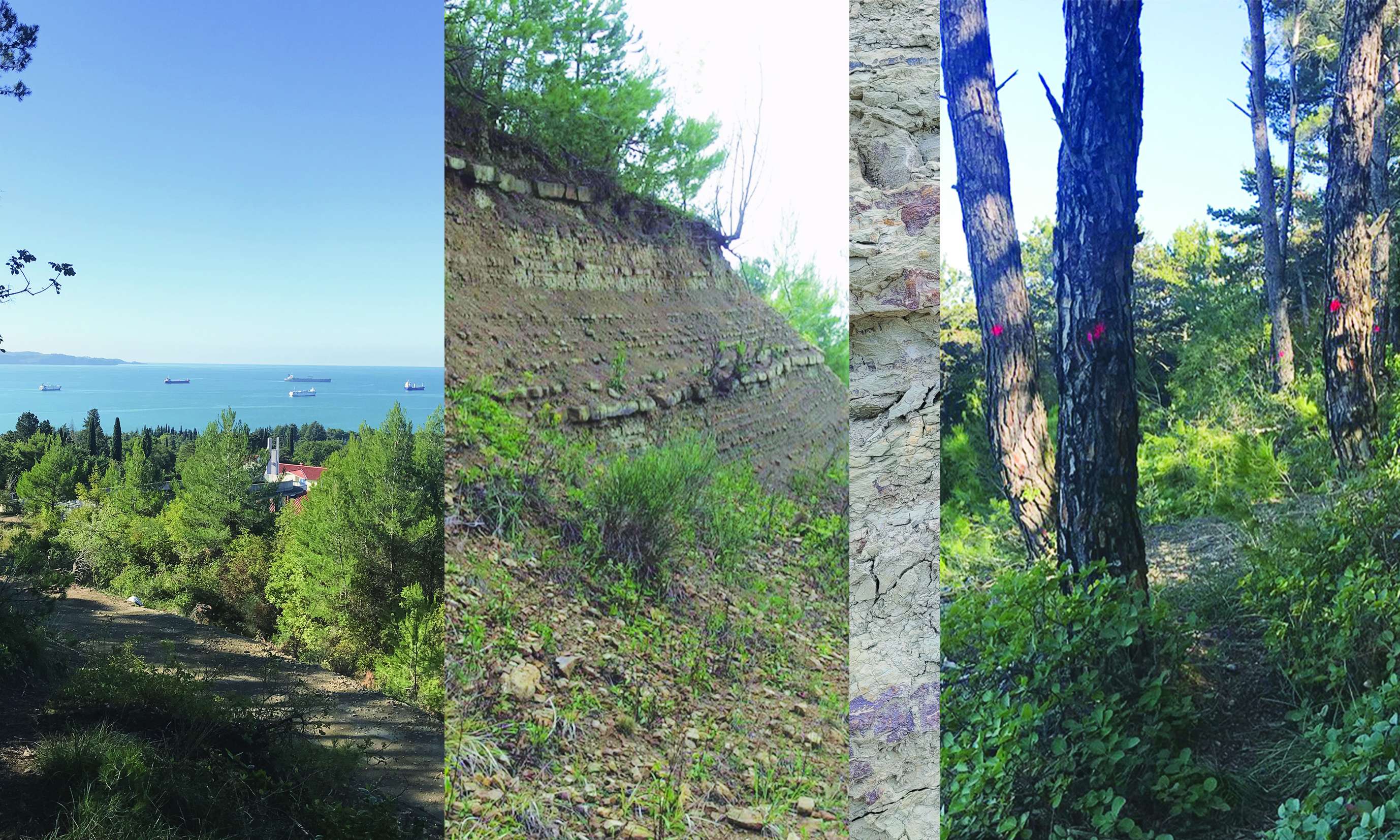
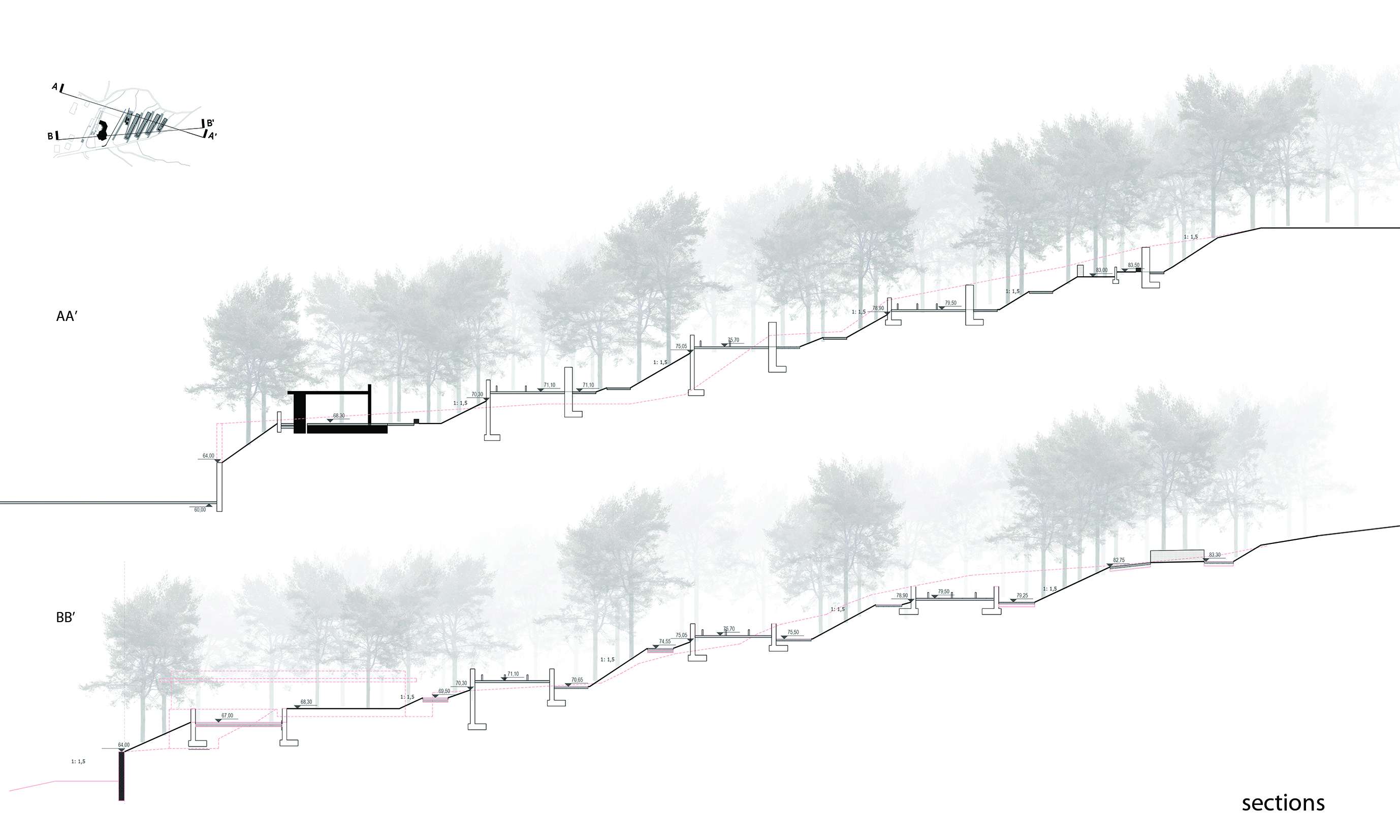
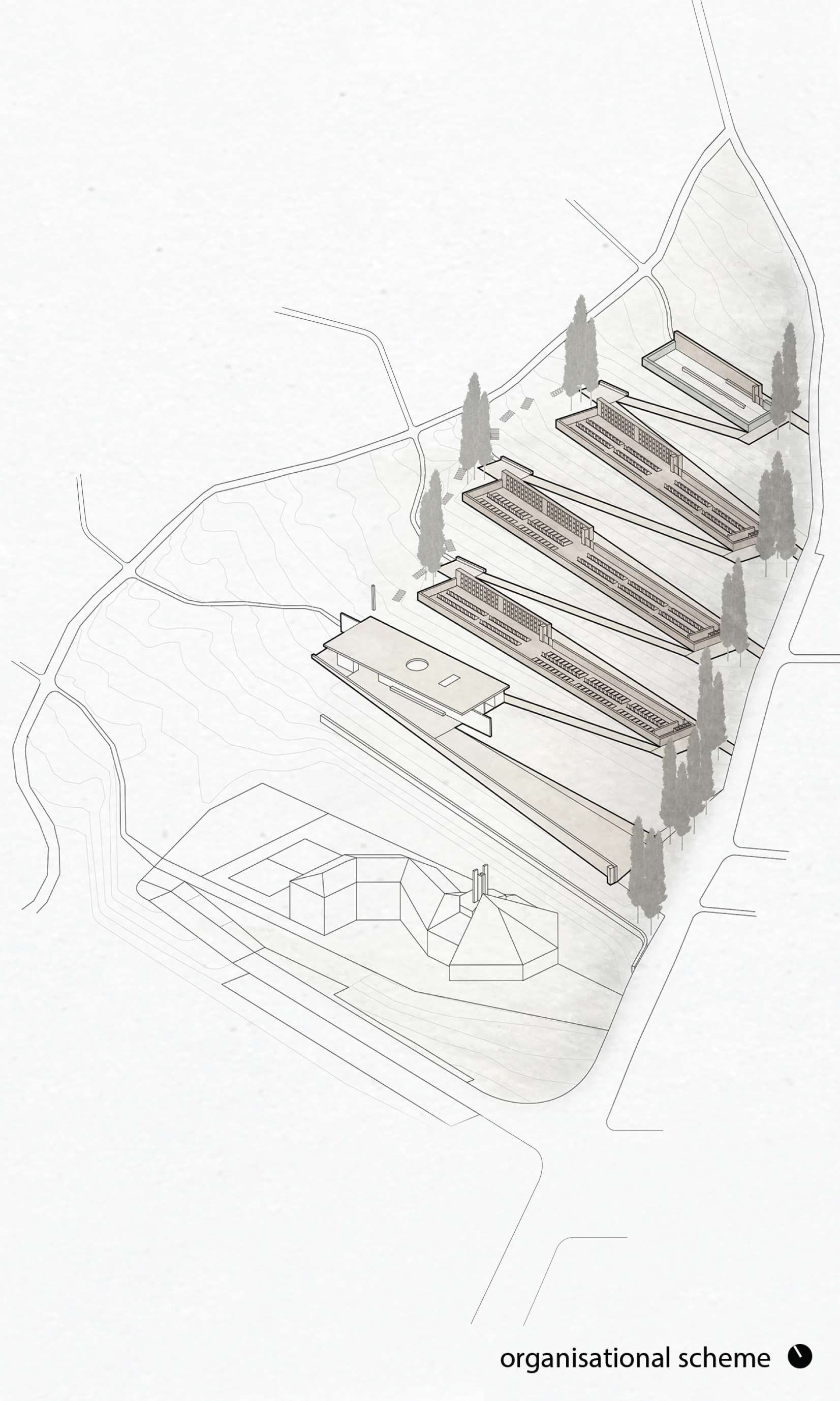
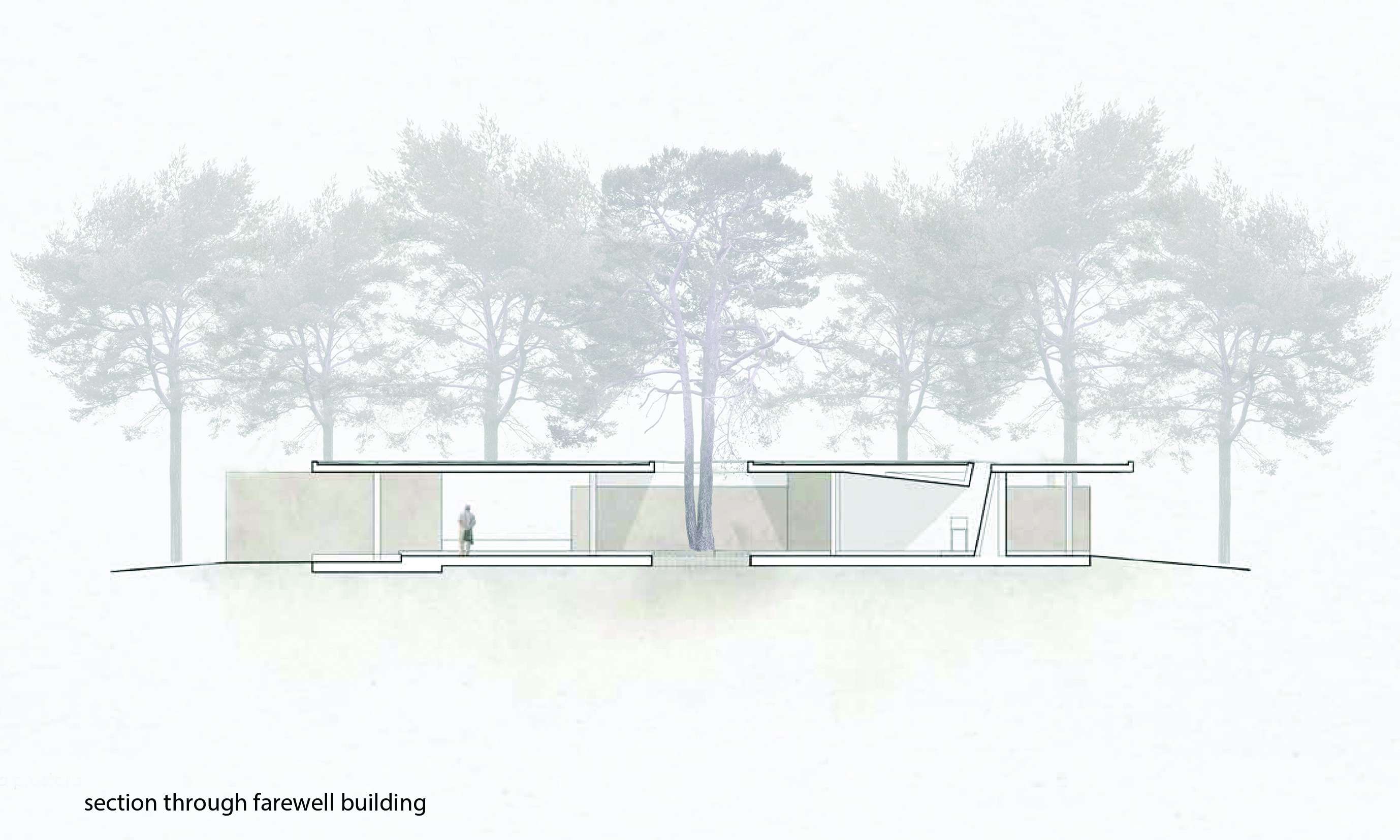
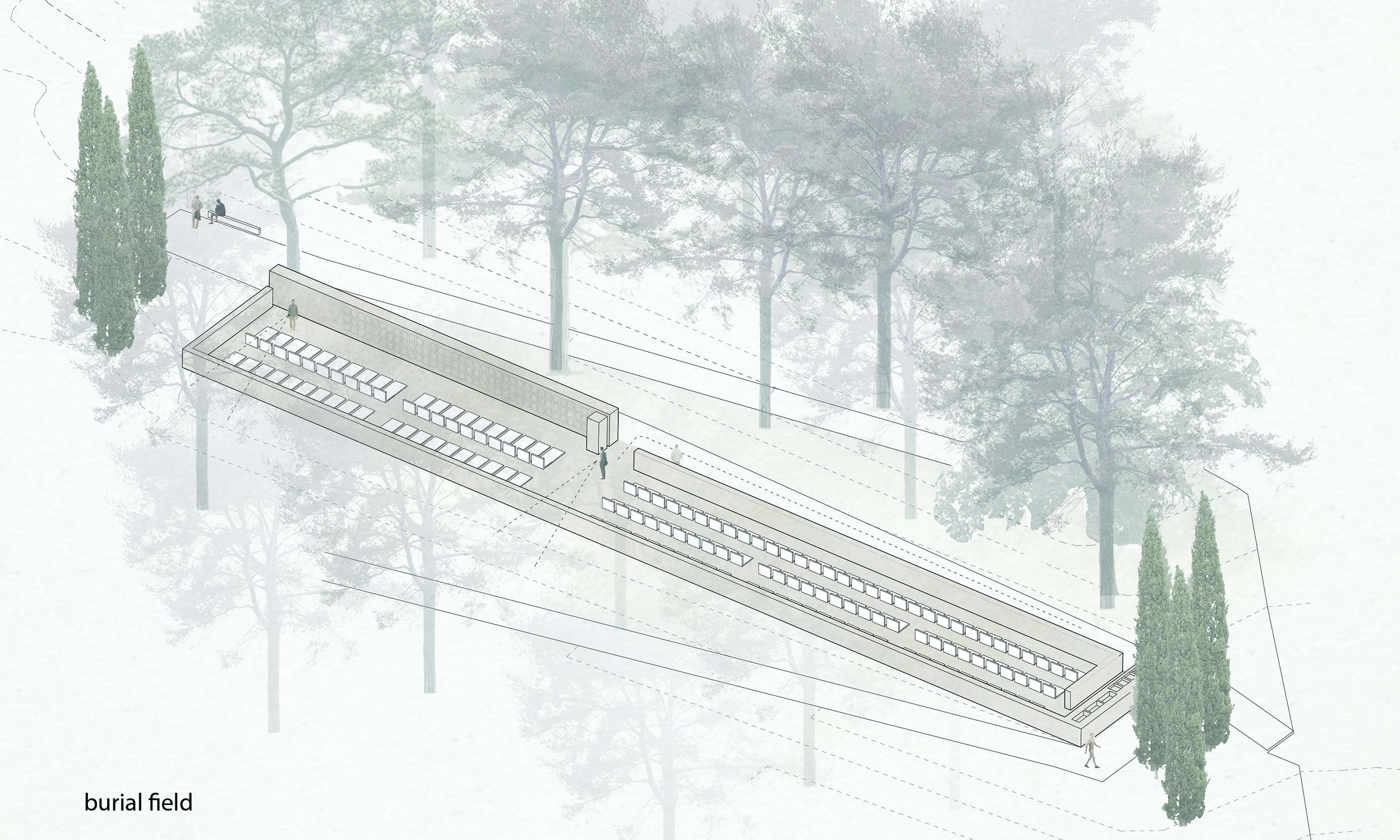
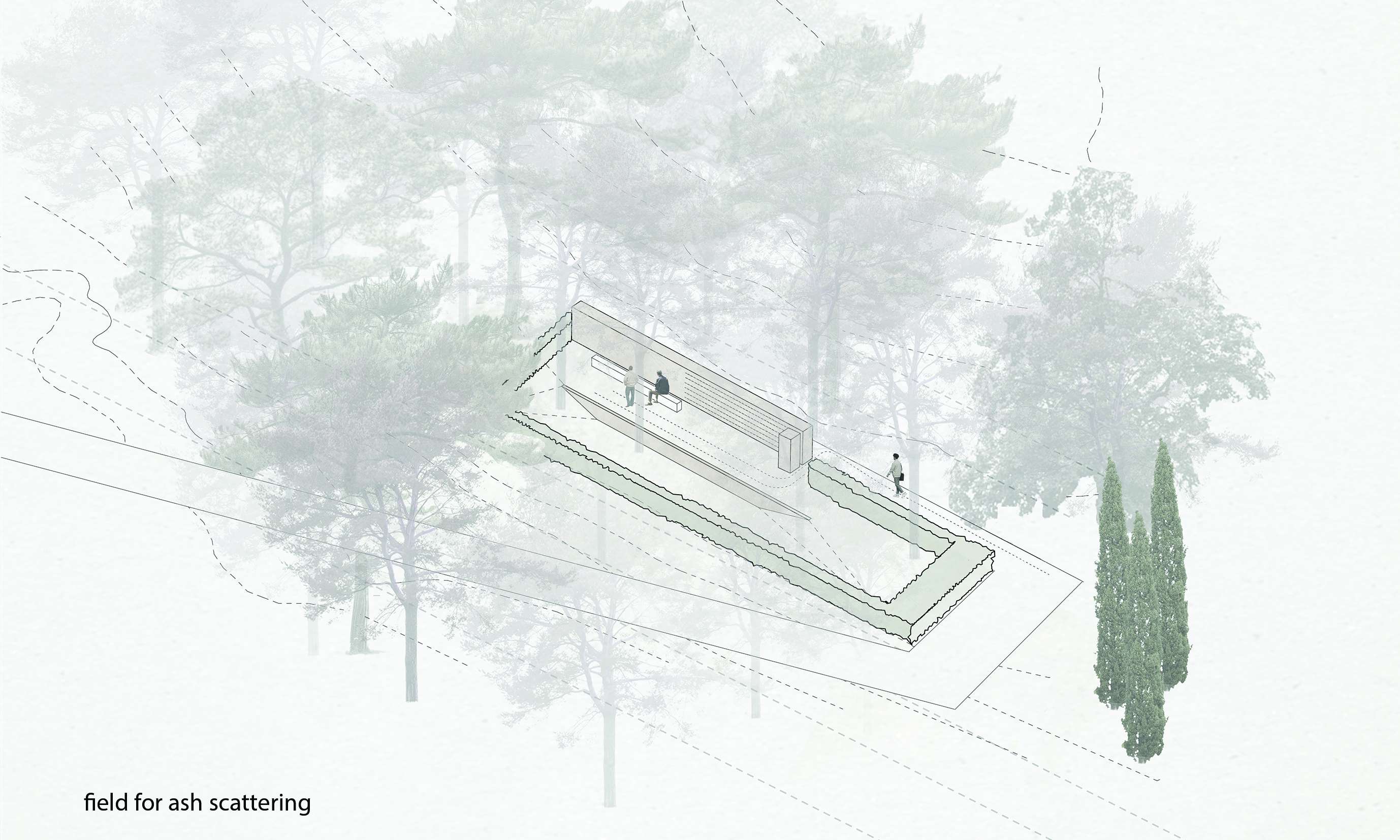
Cementerio de Ankaran
Cementerio de Ankaran
Ankaran Cemetery
Embedded in a network of public paths, the Ankaran cemetery highlights the ambiguity and incomprehensibility of the transition between the two worlds. It weaves them into a unified public space, transforming the traditional notion of the cemeteries: as part of the freely accessible, traversable forest the cemetery transforms a heterotopia into a metaphor of community.
The location on the edge of a forest, on a ridge above the town, with views over the Gulf of Trieste and Slovenian Istria, offered the genius loci of the Mediterranean: sharp contrasts between light and dark, the verticallity of pine trees and the bright flatness of the sea, the dreamy, sun-scorched summer afternoons, and the fierce gusts of the winter storm wind.
The implementation of a contemporary concept and sustainable construction was made difficult by the steepness, the clayish subsoil prone to sliding, by ensuring the stability and manageable slopes for the embankments between terraces and of the ceremonial path. But it was precisely these constraints which led us to integrate the cemetery into a network of woodland trails by only enclosing the burial fields. While the walled-in fields provide for the intimacy of remembrance and farewel the cemetery as a whole is part of a freely accessible forest used for strolling and recreation. It offers a sequence of enclosed graveyards, arranged above the farewell building, which together give rhythm to the ascent up the slope, crucial for the farewell ritual.
The ritual path connects the parts with a pronounced dramaturgical effect. It starts in the square in front of the cemetery, passes through the farewell building and winds its way between the terraces, allowing visitors to experience the cemetery sequentially—by alternating directions of movement between the density of the woodland and the openness of the horizon. As they walk between the burial fields, they continuously experience a shift from the forest toward the sea, from darkness to light, while the very dramaturgy of movement constantly anchors them in a broader spatial context.
Only when the pine trees pierce the horizon with their trunks and their canopies form a green roof will the forest—along the walls and karst stone—become the main vehicle of reverence.
Capacity of the cemetery: 110 burial plots for coffins, 246 burial plots for urns, 180 columbarium niches, and a site for scattering the ashes.
Project team, competition:
Landscape architecture: Ana Kučan, Luka Javornik, Danijel Mohorič, Pia Kante, Katja Mali
Architecture: Uroš Rustja, Primož Žitnik, Mina Hiršman, Martina Vitlov, Mateo Zonta
Project team, design, implementation:
Landscape architecture: Ana Kučan, Luka Javornik, Danijel Mohorič
Architecture: Uroš Rustja, Primož Žitnik, Mina Hiršman, Mateo Zonta; wayfinding graphic design: Tomaž Mlinarič
Photographs:
- all Ana Skobe accept:
- image 8-Studio-AKKA_Ankaran_foto_JakaIvancic - Jaka Ivančič
- image 20-Studio-AKKA_Ankaran_cemetery_basis - Studio AKKA
